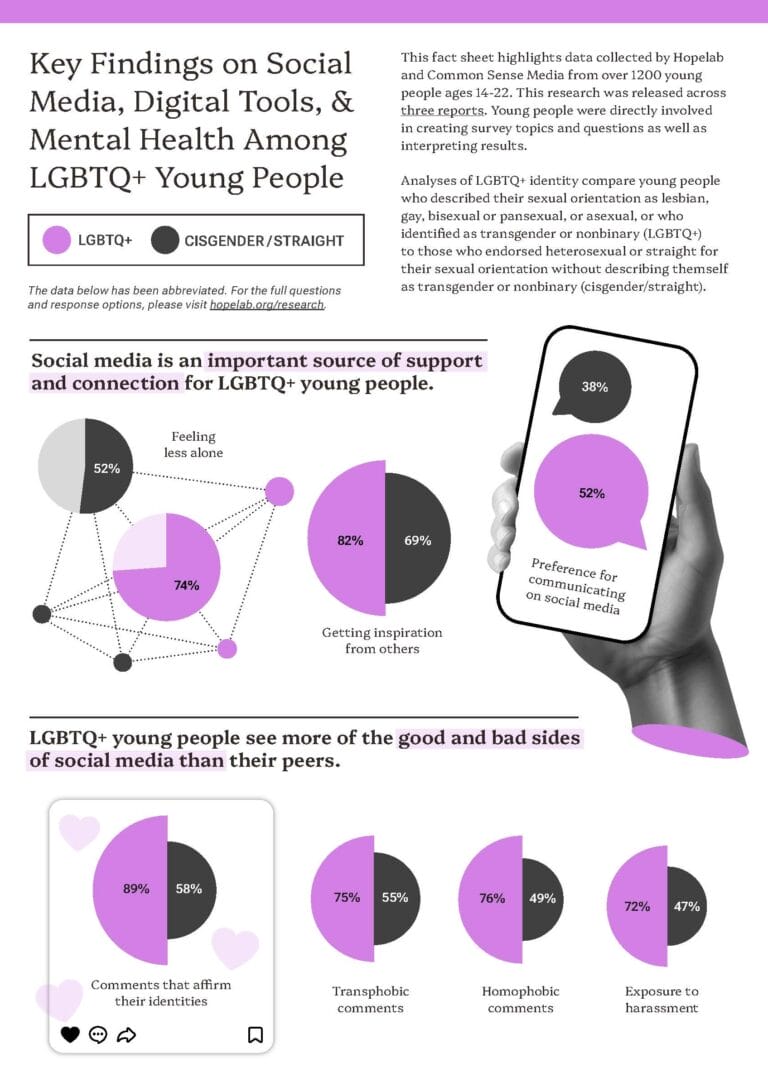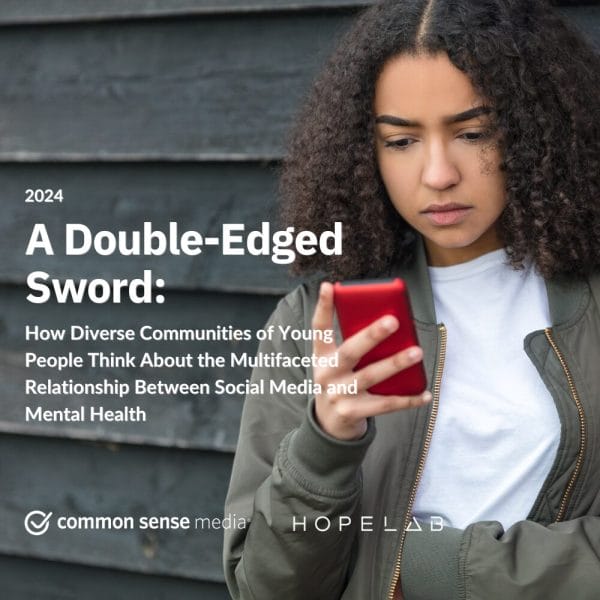This fact sheet highlights data collected by Hopelab and Common Sense Media from over 1200 young people ages 14-22. This research was released across three reports. Young people were directly involved in creating survey topics and questions as well as interpreting results. Analyses of LGBTQ+ identity compare young people who described their sexual orientation as lesbian, gay, bisexual or pansexual, or asexual, or who identified as transgender or nonbinary (LGBTQ+) to those who endorsed heterosexual or straight for their sexual orientation without describing themself as transgender or nonbinary (cisgender/straight).
Key Findings on Social Media, Digital Tools, & Mental Health Among LGBTQ+ Young People

Featured research

The third installment of a national survey developed by Hopelab and Common Sense Media, and conducted by NORC at the University of Chicago, shows that while social media continues to pose risks, it also plays a beneficial role in supporting the mental health and well-being of young people — especially those from marginalized communities.

This study examines generative AI use by race and ethnicity, age, gender, and LGBTQ+ identity and shares a nuanced understanding of how different demographic groups perceive and interact with generative AI technologies. Young people were directly involved in the creation of survey topics and questions and the interpretation of results.

This study looks at how teens and young people are embracing online mental health tools — from social media to therapy and mental health apps — as resources for seeking support and managing their own mental health and well-being.
Related Content
View all Research
A study from Hopelab, in collaboration with media psychology expert Dr. Bradley Bond, provides a nuanced understanding of how unique online connections with media figures, such as social media content creators, contribute to the positive experiences, community connection, and identity development for Queer young people.

This study examines generative AI use by race and ethnicity, age, gender, and LGBTQ+ identity and shares a nuanced understanding of how different demographic groups perceive and interact with generative AI technologies. Young people were directly involved in the creation of survey topics and questions and the interpretation of results.

